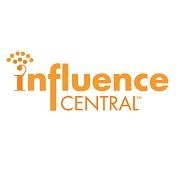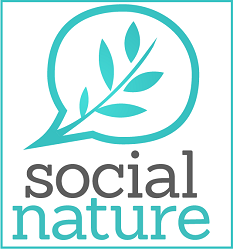Support Breast Cancer Awareness
On May 3, 2012, the Canadian Breast Cancer Foundation (BC/Yukon Region) is hosting their 20th year on celebrating Awareness Day, sharing its work in breast cancer research, education and awareness, and providing guests with an update on the state of breast cancer and breast health in BC.
Keynote speaker René Syler is a former CBS Early Show news anchor, author (Good Enough Mother), parent blogger, and mother. She believes passionately in finding your voice and living by your own standards. As the daughter of two breast cancer survivors, she underwent a highly-publicized, preventive mastectomy in 2007. René now works tirelessly to promote early detection and travels the country speaking about health issues, modern parenting and the importance of putting yourself first.
René is the daughter of two breast cancer survivors. Her parents’ diagnoses and her own pre-cancerous condition led to her preventive mastectomy in 2007, a controversial surgery that was profiled on Oprah. That experience also ignited her passion as she now travels the country as an ambassador for Susan G. Komen for the Cure, spreading the word about early detection and treatment of the disease. René was also awarded the prestigious Gracie Allen award for her television series on breast cancer.
René lives in Westchester, New York with her husband, Buff Parham, children Casey and Cole and their yellow Lab Olivia. René's powerful story is one of many highlights on Awareness day.
To find out more about the event or to purchase your tickets to the 20th Annual Awareness Day Luncheon, visit the website at http://www.cbcf.org.
The following info is on breast health and tips on how to reduce the risk of breast cancer:
REDUCE YOUR BREAST CANCER RISK
Research shows that the way we live influences our risk of developing breast cancer. In this section, the Canadian Breast Cancer Foundation offers facts to inform you and tips to motivate you to take action for your breast health and to reduce your risk of breast cancer.
Our lifestyle choices are shaped by many factors, including our income, where we live and work, the quality of the air we breathe, the standard of housing we live in, and our proximity to public transport, grocery stores, safe parks and public spaces, health clinics, and other amenities that support our wellness. These factors shape our health and the choices we are able to make.
By living well —being a healthier body weight, eating a more balanced diet, getting regular physical activity, limiting your alcohol consumption and quitting smoking—you can help to reduce your risk of breast cancer. By reducing your exposure to toxic chemicals in the environment, you can also help to reduce your risk of breast cancer.
Taking precautions for your breast health
The Foundation supports the use of the precautionary principle as a way to apply evolving breast cancer prevention evidence in our daily lives. By following the precautionary principle in your life, when scientific evidence is inconclusive you put your health first and err on the side of caution.
Science may not have all the answers yet, but that doesn’t mean we are powerless. There are many practical actions and concrete steps we can take now to help reduce the risk of breast cancer. We encourage you to take precautions that put your health and the health of others first.
Individual change is a first step. Advocating for change to improve the environments we all live and work in is the next so that healthier choices are the easy, accessible and affordable options for everyone.
BE BREAST AWARE
Men as well as women have breast tissue and can develop diseases of the breast, including cancer. The Canadian Breast Cancer Foundation encourages women and men to be breast aware.
Breasts change throughout life. Being breast aware means being familiar with how your breasts normally look and feel, knowing what changes to look for, and discussing any unusual breast changes with a health care provider.
Current scientific evidence supports being breast aware as an empowering approach to women’s preventive health care. It encourages you to know your breasts and how they change over the course of the monthly menstrual cycle, in pregnancy or breastfeeding, or as we age. There is no right way or proper technique to being breast aware. You find a way or ways that are comfortable for you. There is also no time schedule for being breast aware. You do it at a time and in a place that works for you.
Breast awareness is an important part of proactive and preventive health care but it does not claim to save lives or reduce deaths from breast cancer.
Steps to breast awareness:
• Know how your breasts normally look and feel.
• Know what visible changes to check for.
• Look and feel for changes.
• Discuss any changes with a health care provider.
Learn about the benefits and limitations of screening for earlier detection breast cancer and make an informed decision about what is right for you.
Encourage the women and men in your life to be breast aware.
The Canadian Breast Cancer Foundation encourages women and men to be breast aware.
If you are familiar with how your breasts normally look and feel and change through time, you are more likely to notice breast changes that seem unusual to you.
There’s no right or wrong way to check your breasts—just find a way that is comfortable for you.
You can try moving your middle fingers in small circles from the outside of the breast to the nipple. Cover the surface of each breast, and remember to check the areas above and below the breasts, including the armpits.
If you notice any breast changes that concern you, the Canadian Breast Cancer Foundation encourages you to discuss them with a health care provider.
Disclosure: I did not receive any products nor was paid for this post. However, I will be receiving a signed copy of René Syler’s book Good Enough Mother in return. Any expressed opinions are my own and personal thoughts. No other compensation was given.

















0 comments: